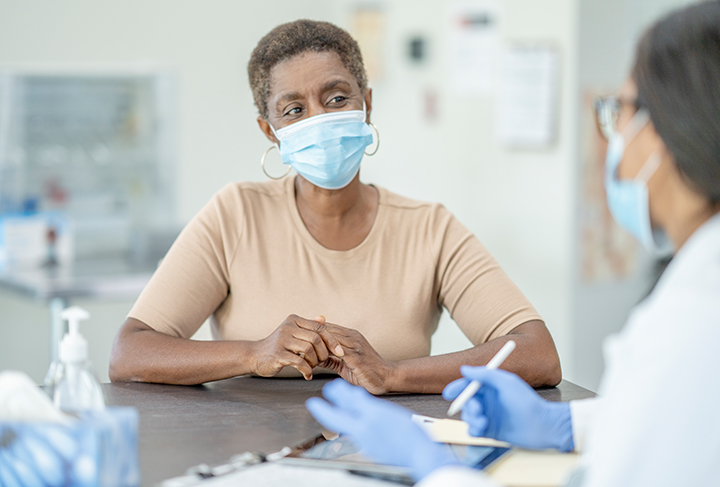
Lung Cancer Screening
What is Lung Cancer Screening?
Lung cancer screening is used to detect the presence of lung cancer in people with a high risk before signs or symptoms begin showing. People at high risk, such as those with a history of heavy tobacco use, can significantly increase their odds of survival by scheduling annual lung cancer screenings. The recommended screening test for lung cancer is low-dose ct lung cancer screening.
A procedure known as a low-dose computed tomography (LDCT) scan can detect lung cancer at its earliest stage—while the disease is still treatable—and can considerably improve your chances of survival. Research has shown LDCT scans of the chest are the best way to find tiny tumors or other abnormal growths in the lungs and are very beneficial for those with a higher risk of developing lung cancer.
Benefits of LDCT Scans
- LDCT scans create the same detailed pictures as standard CT scans, however, they use lower levels of radiation and do not involve needles or contrast dye.
- Like a routine CT scan, an LDCT scan is both quick and painless for most patients.
- Research has shown that screening for lung cancer with LDCT scans instead of traditional chest X-rays reduces the risk of death by up to 20%.
Annual screening exams are reserved for people who are found to be at high risk for lung cancer. The following criteria may help determine if you qualify for annual lung cancer screenings.
Age
Current or former smokers between the ages of 50 and 80 may be candidates for screening. Age recommendations for lung cancer screenings may vary depending on your health. If you’re over the age of 50 and have a heavy smoking history, talk to your Mercy doctor to see if they recommend you begin annual lung cancer screenings.
Pack-Years
You should consider a lung cancer screening if you have a history of smoking for 20 pack-years or longer. Pack-years are calculated by multiplying the number of packs of cigarettes you’ve smoked a day and the number of years you've smoked.
- For instance, someone who has smoked 1 pack a day for 20 years would have accumulated 20 pack-years.
- Likewise, someone who has smoked 2 packs a day for 10 years would also have accumulated 20 pack-years.
Recent Ex Smokers
People who once smoked heavily, but quit within the last 15 years may be candidates for screening. If you’ve recently quit smoking, you’ve just reduced your chances of getting lung cancer. However, if you were previously a heavy smoker, you may be an at-risk candidate.
Overall Health
People who are in poor health are less likely to benefit from lung cancer screening and may even experience complications due to the procedure. You must be healthy enough to undergo follow-up tests and additional treatment if needed. Screening is not recommended for those whose lung function is already impaired or who have other underlying health conditions that would make surgery more difficult.
Prior History of Lung Cancer
People with a prior history of lung cancer should also consider routine screenings. If you were treated for lung cancer more than five years ago, ask your Mercy doctor if you should consider retesting.
Other Risk Factors
People who have other risk factors for lung cancer are also considered to be at high risk and may qualify for screening. Additional risk factors include:
- Chronic obstructive pulmonary disease (COPD)
- An established family history of lung cancer
- Exposure to asbestos, radon and other harmful chemicals
Lung cancer screening carries several risks which you should be aware of. The list of risk factors for lung cancer screening includes:
- Being exposed to a low level of radiation
- Undergoing necessary follow-up tests, depending on the result of your LDCT scan
- Finding cancer that's too advanced to cure
- Missed cancers on your screening test
- Detecting other health problems
No matter what the results of your lung cancer screening, you’ll find the care and support you need at Mercy. If you’re cancer-free but still smoking, we’ll give you the tools you need to quit for good. If lung cancer is detected, you can take comfort in knowing we offer the experience and advanced treatments you need not only to face it but also to overcome it.
Lung Cancer Screening Program
At Mercy, we offer comprehensive screening services to diagnose and treat a full range of cancer types, including:
At Mercy, we offer compassionate care for a variety of oncology treatment services, including:
